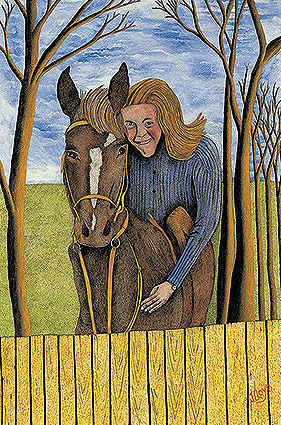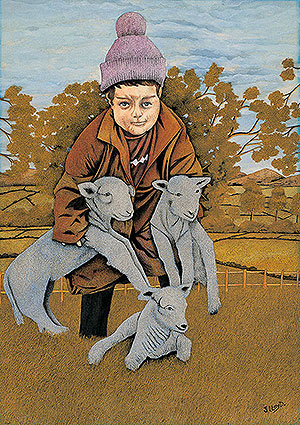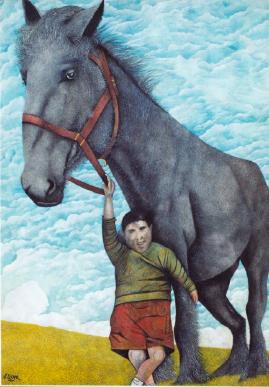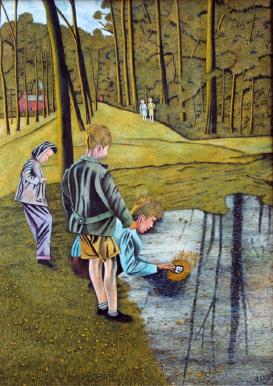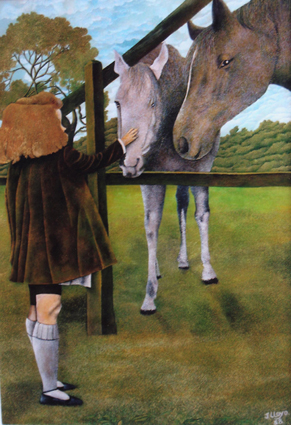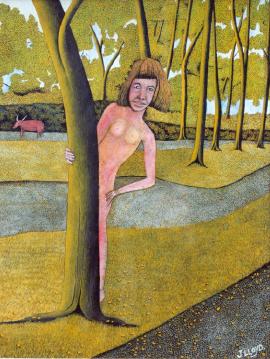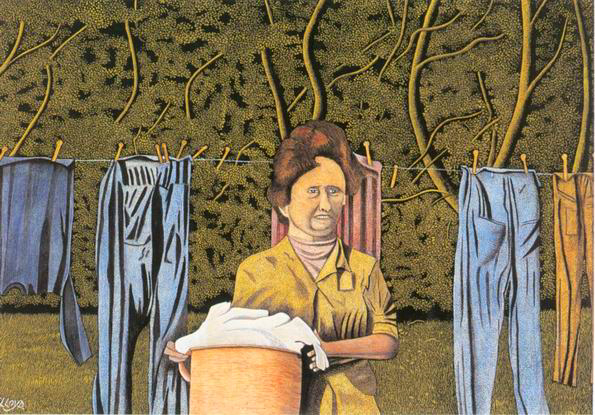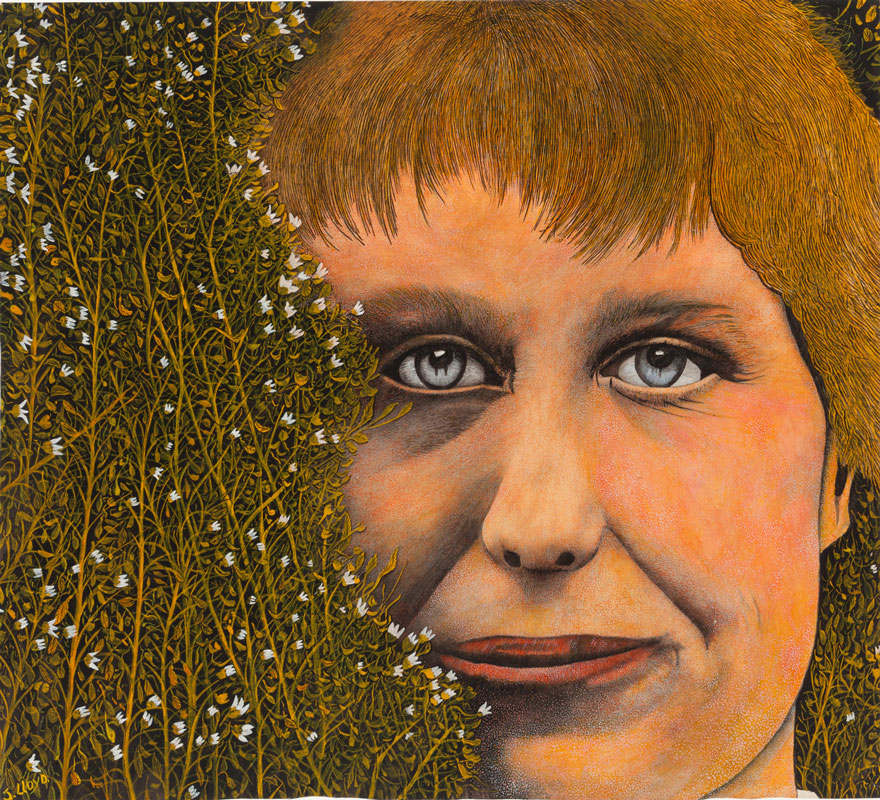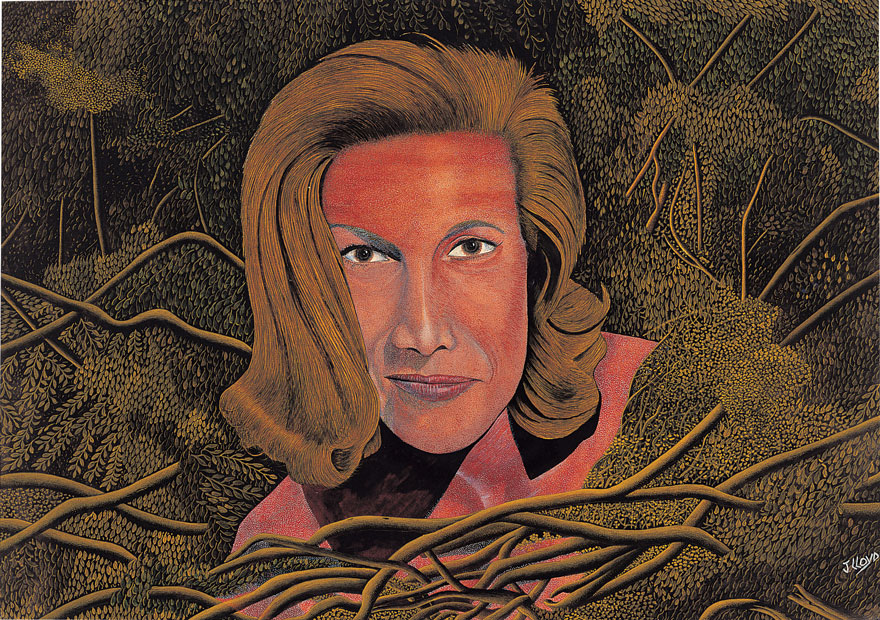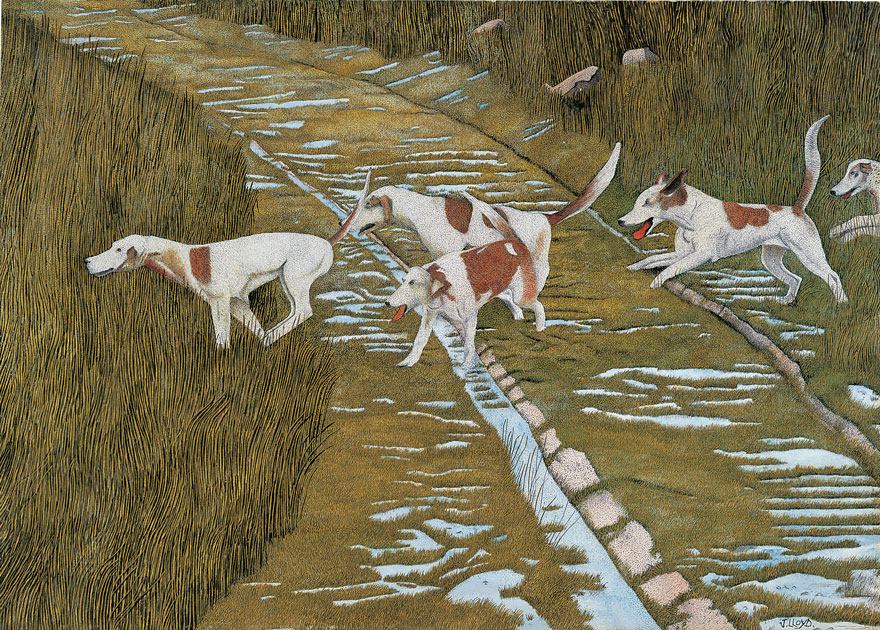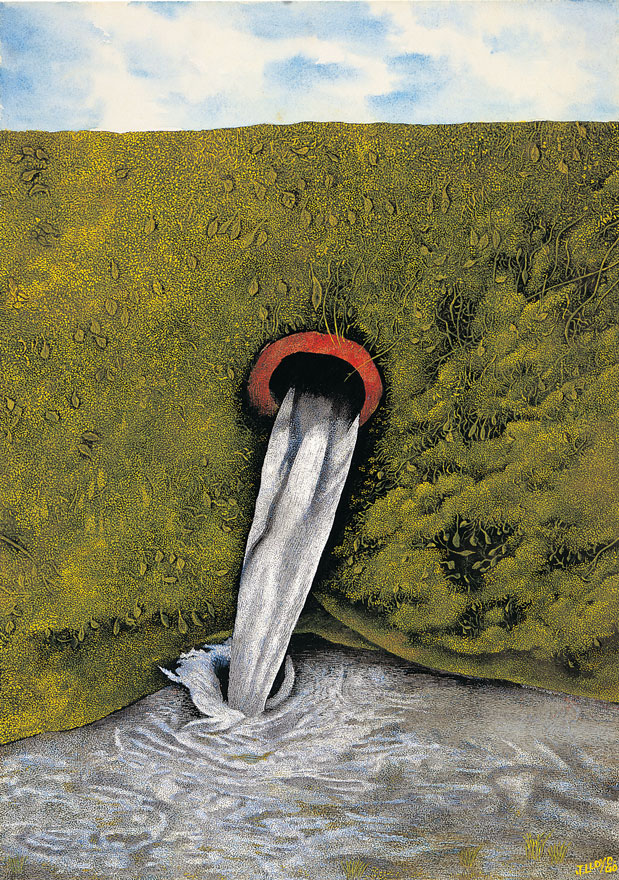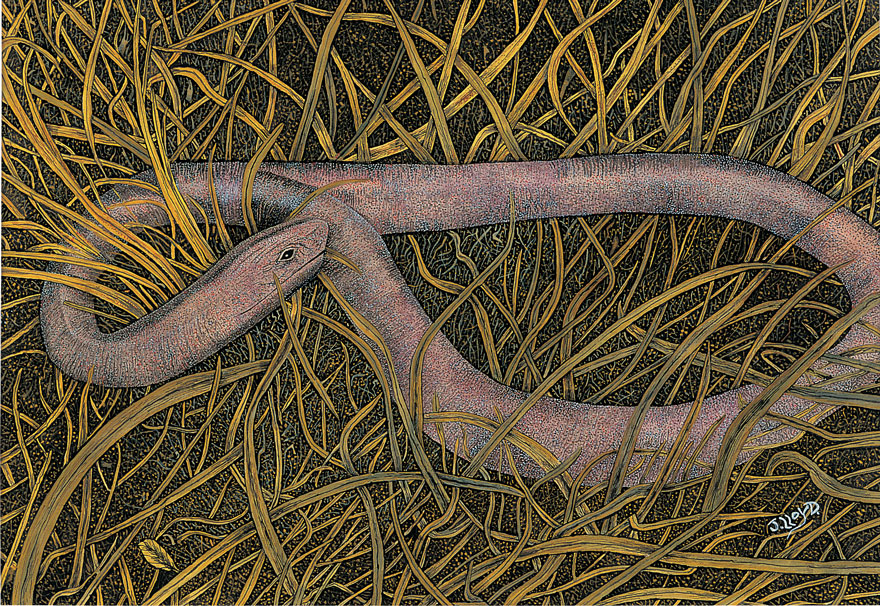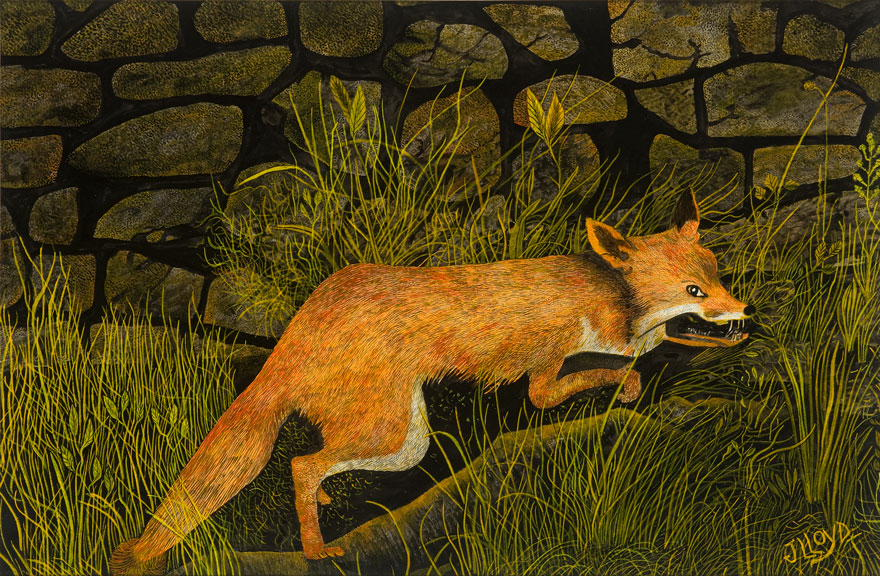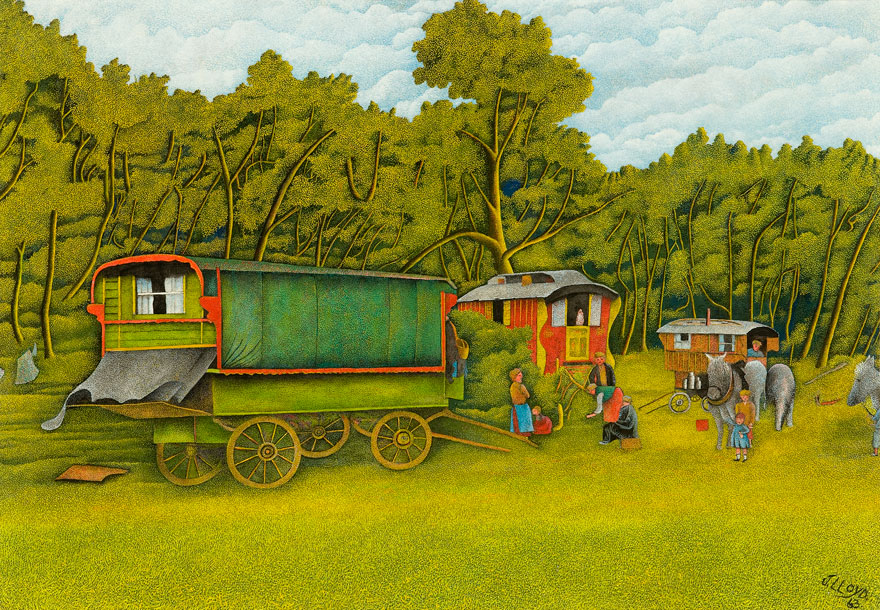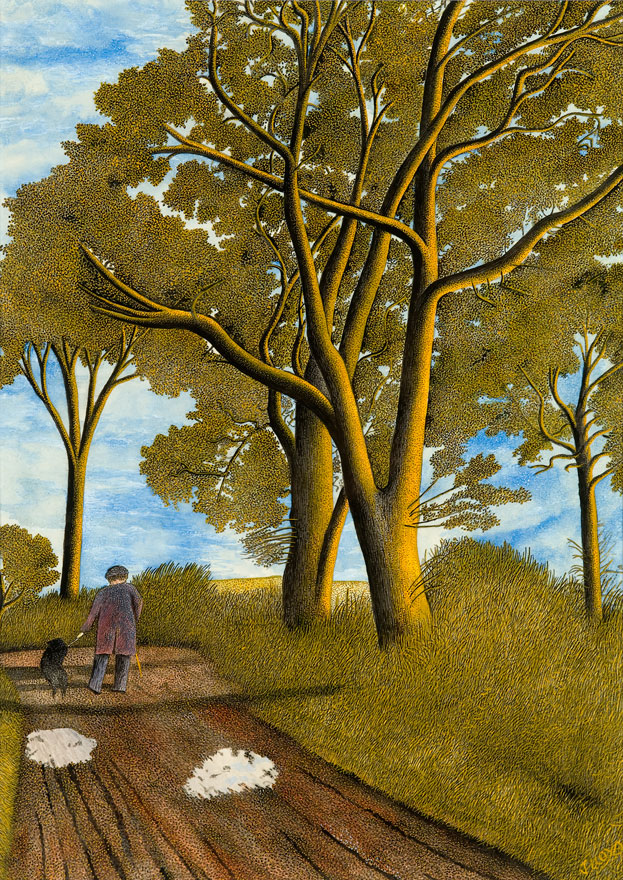James Lloyd
1905–1974, English
Tags: Painting
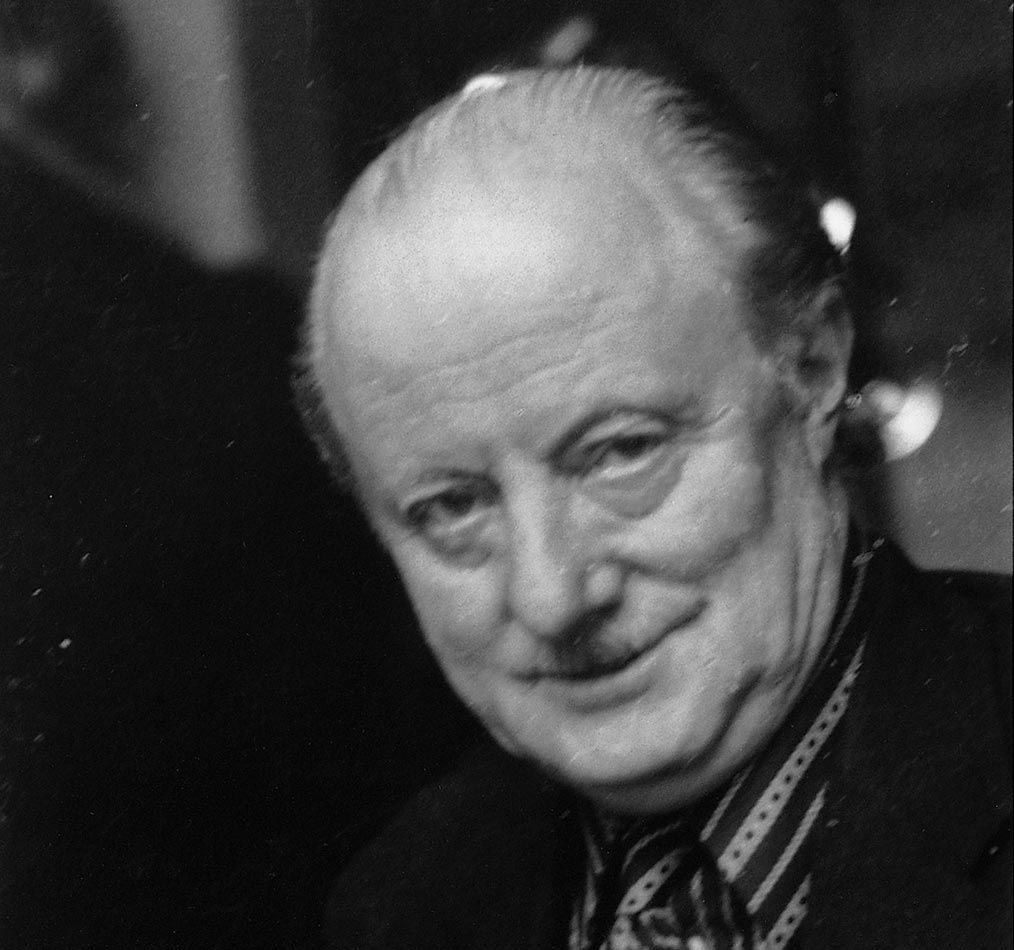
Frederick James Lloyd grew up on a farm in Alsager, a town in the county of Cheshire in England. As a young man, he worked variously as a farm laborer, builder’s laborer, stoker, lamplighter, bus conductor, and police officer. He married in 1931 and had a son, but he and his wife separated after Lloyd returned from voluntary military service in North Africa and Italy. Lloyd remarried at age forty-two and fathered nine children. Working to support his family during the day, he painted in the evenings at his kitchen table—a surface that influenced the size of his works.
Portfolio of Work
Click Arrows to View More Artwork
Lloyd had made black ink drawings in his youth and started making art again when his family could not afford Christmas cards one year. Many small strokes make up his gouache and watercolor paintings of the people, farm animals, yellow-green grasses, and clouded skies of rural England. Studying reproductions of works of John Constable and Joseph Mallord William Turner led him to develop a pointillist technique inspired by the colored dots that made up these printed images.
Although the community near York where Lloyd and his family lived did not value his art, his wife, Nancy, brought his work to an appreciative audience by contacting British art critic Sir Herbert Read. Read and art critic John Berger went to see Lloyd and purchased many works. London gallerist Arthur Jeffress contacted Lloyd in order to exhibit his work. His work was subsequently represented by Portal Gallery in London. Thanks to his success, Lloyd lived to see the British Broadcasting Company (BBC) air a documentary on him in 1964. He also played French painter Henri Rousseau in a BBC film, and traveled to the Netherlands, Yugoslavia, and other parts of the world. Lloyd died in Skirpenbeck, near York. His work is now in the Tate Gallery and in many other European and American collections.
